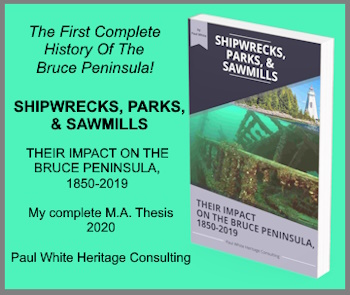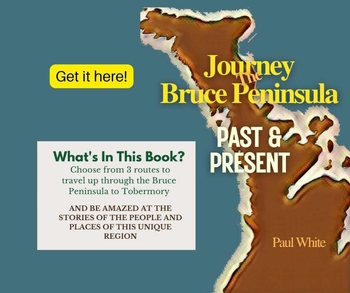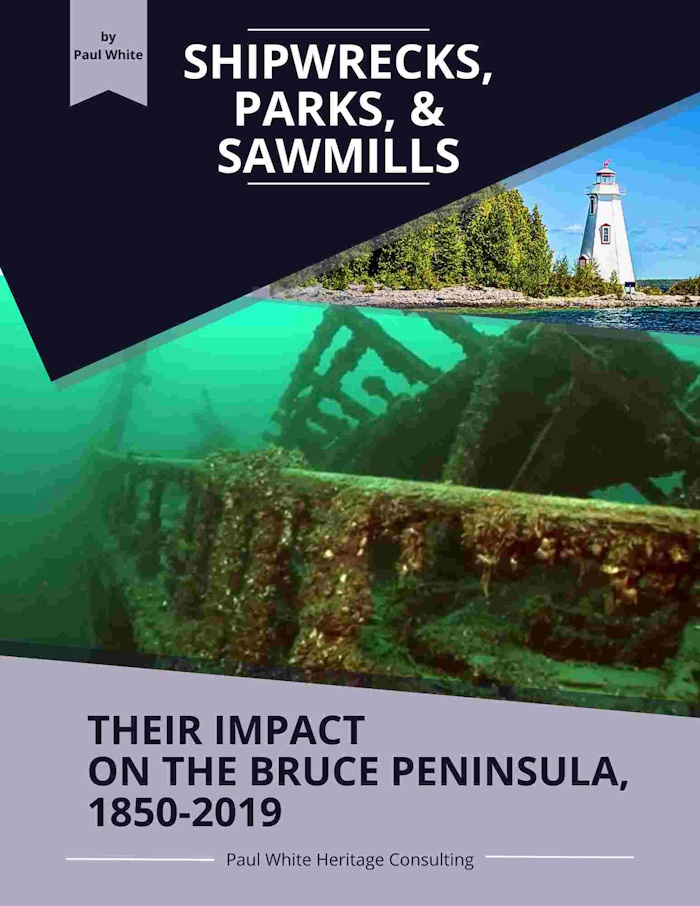Walkerton Ontario: The Beginning
Walkerton Ontario: The beginning of this Bruce County town is the result of the drive and determination of one man, Joseph Walker.
Mah-sko-se-sing (little marsh) is unique in that it passed directly from pioneer settlement to incorporation as a town without ever having been a village.
This feat required a special act of Parliament.
Mah-sko-se-sing? This is the name given by Indigenous people who lived in this area of Bruce County where the town of Walkerton Ontario is now located.
In August 1848, an order-in-council directed Public Land Surveyor A.P. Brough to survey the first and second concessions of the Durham Road in Brant Township.
Within a year, settlers started to claim the free land grants in the newly-surveyed area.
Two of the first of these Brant pioneers were William Jasper and Edward Boulton who arrived in the late spring-early summer of 1849.
However, the pioneer who would lead the campaign in later years for the incorporation of Walkerton Ontario as a town, Joseph Walker, did not arrive until 1850.
In the spring of 1850, Walker left Durham in quest of a site to locate a mill. He walked to Owen Sound (still named Sydenham). From there, he followed the Gimby Trail to the mouth of the Saugeen, and then travelled south to Kincardine. For whatever the reason, this circuitous route did not turn up a suitable location for a mill.
He headed back towards Durham along the blazed trail which would later be cleared to form the Durham Road. Where the Saugeen River crosses the Durham Road, he found the ideal location.
Walker applied for a government grant of land and permission to build a mill.
In August 1851 the government granted him his request.
The story of Joseph Walker does not end with the granting of land for a mill site. Instead, it marks the beginning of a story of pioneering determination.
Walker's first objective was to build a log house. This was one of the requirements of the free land grant system.
This structure would become the first building on what would become the town of Walkerton.
Walker's log home would not only house his family, but it would also serve for many years as a sort of hotel for settlers who were arriving to claim their land.
The second major requirement for gaining patent to a free land grant was the clearing of at least 12 acres of the plot. The industrious Walker achieved this in one year. But not just for one plot of land — but for four separate grants of land!
With these obligations met, Walker set about to fulfill his primary objective.
In 1852, he began construction of a sawmill. To create enough power to run the mill, a dam had to be built. This is a difficult task in the best of times. However, in this virtually unsettled region of Bruce County, it must have seemed slightly illogical to many.
However, Walker, using ingenuity in place of money, successfully constructed a wooden dam.
He built the dam in two sections. Construction was started from each shore and the two segments were joined on a small island in the middle of the river.
Through determination and ingenuity, Walker expanded his operations and became the driving force behind the quest to incorporate Walkerton as a town.
Today, Walkerton is a major community in picturesque Bruce County.
Many times, in this column, I have extolled the virtues of the determined pioneers of Grey and Bruce counties. However, I may have overlooked another reason why these men and women worked so hard to create a life in this region — the scenic beauty of the area!
To illustrate this point, let me conclude this week with a passage from Norman Robertson's History of the County of Bruce.
It seems that two prospective settlers in 1849 were looking out over the area which one day would become Walkerton. After an effusive oration by Thomas Adair, his comrade, Kenneth Kemp, a staid Scot, simply responded by saying, "Eh mon, if Eden was anything like this, what a fool Adam was to eat the apple!"
A version of this article first appeared in my Local History column in the Owen Sound Sun Times in 1996.
Bruce County History
Bruce County history is rich with stories about the development of communities along the Lake Huron shoreline and shaped by memorable events and the people.
The "Battleship By-Election" was the result of a debate that embroiled all of Canada but was settled in a rural region of southwestern Ontario prior to the First World War.
Bruce Road 3: A Colonization Road linked prospective settlers to undeveloped Crown Lands and a new life.
British Peerage a Source for Township Names. It is interesting to check the origin of the names bestowed on pioneer places such as towns, townships and counties.
Chesley Ontario Welcomes the Krug Brothers who were looking for a place to make their future and their fortune. They were not only successful, but they made significant contributions to the social fabric of their adopted home town.
Billy Crawford: Pioneering Spirit Personified. If you take the time to consider the people you have met during your life you too may know or have known, someone with pioneering spirit just like Billy Crawford.
Frozen Rivers & Lakes can be Hazardous: Icy waterways offer many benefits such as ice fishing, but beware weak, or thin ice is not easily detected and can spell disaster.
Kincardine Ontario's First Settlers using a bit of savvy and some luck created a future for themselves and their families on the Lake Huron shoreline.
The Krug Impact on Chesley Ontario was immense not only in terms of the community's social fabric but with regards to community's economic growth.
Wilfrid Laurier: Despite the town's best efforts to make Wilfrid Laurier's visit a memorable occasion, it would be clouds of dust that would remind the Prime Minister of the Lake Huron community.
Mildmay Ontario overcame competition from other communities to claim its spot in Carrick Township on an important settlement route to the Lake Huron shoreline.
Pioneer Diaries provide Interesting Information about many topics, but sometimes information about the weather can be quite surprising!
The pioneer settlement in Arran Township was completed in 1851. The survey crew had been impressed, by the cheap cost and the potential of the land, that two members of the team, George Gould and Richard Berford, took up plots of land.
Port Elgin Ontario Started with a Storm. A ship forced to seek refuge from Lake Huron's stormy wrath signalled to one man the idea of starting a new community.
Southampton's early history was a time of identity crisis, and with a connection to an early Arctic mystery story.
Southampton Ontario Suffered a Major Fire in 1886: The havoc was created by a furious high wind storm that spread the flames over much of the town.
Tara Ontario's Mill Started the Village Economy and with the entrepreneurial and inventive genius of one man the community prospered!
Walkerton Ontario: The Beginning of this Bruce County town is the result of the drive and determination of one man, Joseph Walker.





